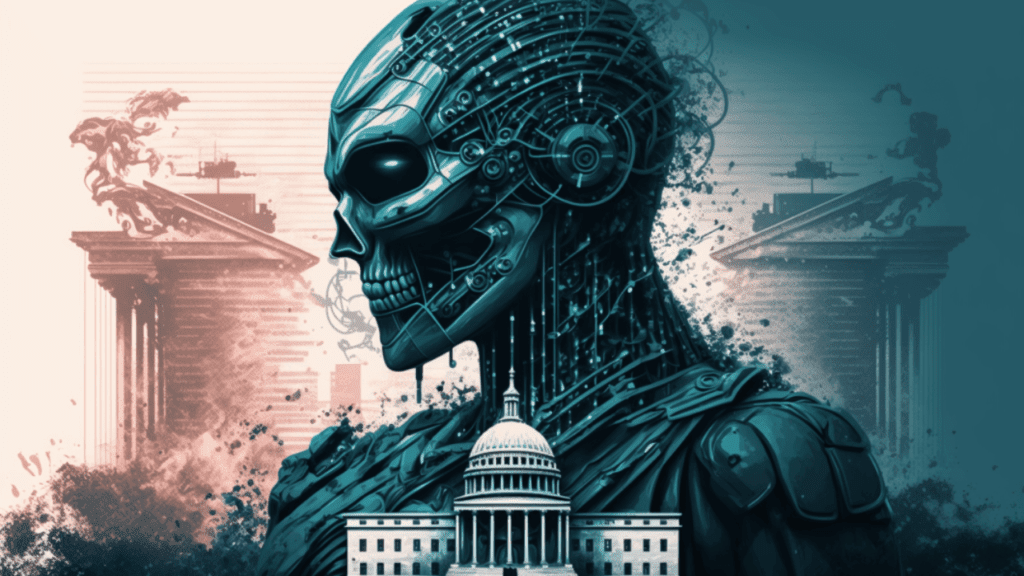Photo was created by Webthat using MidJourney
The Role of AI in Enhancing Public Services
Artificial intelligence (AI) is increasingly becoming a vital tool for governments worldwide as they strive to offer efficient and responsive public services.
From healthcare to transportation, and education to public safety, AI can enhance decision-making by processing massive amounts of data, modeling complex scenarios, and predicting outcomes accurately. However, AI can also pose ethical, legal, and social challenges, such as bias, transparency, accountability, and privacy.
In this blog post, we will explore the benefits and risks of using AI in Policymaking and public service and recommend ways to balance them effectively.
Benefits of AI in Policymaking and Public Service
AI has the potential to help government services function more smoothly and effectively. For instance, AI-powered chatbots can offer 24/7 support to citizens, saving time, and resources for human personnel.
AI can analyze vast amounts of data and offer insights that lead to better decisions. AI can help in key policy areas like healthcare. It can analyze complex health records and identify patterns that assist in the diagnosis and treatment of diseases.
AI can assist in traffic management by detecting traffic accidents and analyzing traffic data to optimize traffic flow. In public safety, AI-powered security systems can help detect and prevent crimes. By democratizing data, AI can also make government services more responsive to citizens’ needs.
Risks of AI in Policymaking and Public Service
As beneficial AI can be, it can also pose significant risks. Algorithmic bias is a potential challenge in AI use. It occurs when AI models learn from biased or incomplete data, resulting in unfair or discriminatory outcomes. For example, algorithms that define employment criteria may perpetuate gender or racial bias.
Another significant challenge of AI use is a lack of transparency and accountability in AI systems. It can be hard to determine why particular recommendations or decisions resulted from data analysis by AI models. The complexity of AI systems also makes it challenging for government officials to interpret the decisions AI systems make.
AI can also pose privacy challenges when it collects significant amounts of data to make informed decisions. Lack of transparency, accountability, and data privacy can result in mistrust and reluctance to participate in government services that employ AI models.
Recommendations for AI in Policymaking and Public Service
To balance AI benefits and risks, policymakers and decision-making authorities must take an ethical approach to AI use in government. Governments should make AI-based decisions visible and understandable for all stakeholders, including the general public. They can do so by documenting their decision-making processes and explaining what data has informed their decisions.
For efficient AI use in government, policymakers must collect and analyze unbiased data. It is essential to ensure that gather data represents diverse perspectives and accurately reflects the population’s demographics. Such data collection ensures that AI models provide a fair representation to all groups.
Another crucial recommendation is that citizens participate in policy, decision-making, and evaluation when AI is involved. In this way, relevant stakeholders can highlight potential unintended consequences, biases, and ethical implications of AI models.
The Importance of Transparency and Accountability
AI’s ability to process vast amounts of data and make informed decisions has the potential to revolutionize Policymaking in government. Yet, AI can also pose significant ethical, legal, and social risks.
It is crucial for governments to balance these considerations when utilizing AI. By adopting an ethical and inclusive approach, governments can create effective AI models that benefit all stakeholders while avoiding potential risks.
AI can complement human intelligence and offer insights that lead to better decisions, but the public must have trust in the system.
CLICK HERE TO READ MORE ON WEBTHAT NEWS

